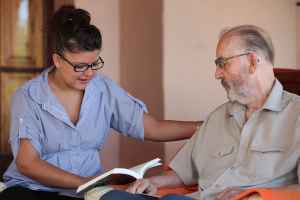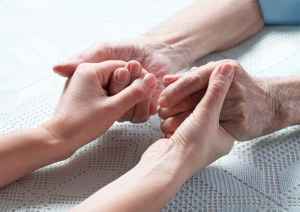Nursing Homes in Vermont
Vermont has become the most rapidly aging state in the United States, despite being the second least populous in the country. Approximately 18% of its over 620,000 residents are aged 65 and older, having grown by at least 3% between 2015 to 2019. By 2030, the Green Mountain State is projected to have more than one out of four Vermonters who are 65+ adults. Fortunately, Vermont is the top-ranking state for health care access and places fifth (the best in the Northeast region) in the AARP Long-Term Services and Supports State Scorecard. On top of these merits, the state’s overall safety and clean environment highly appeal to many retirees.
As many Vermonters continue to age, their changing needs are supported through coordinated services by the state’s Aging Services Network. This network includes various government and nonprofit organizations, home and community-based service providers and at least 37 licensed nursing homes. Seniors may require nursing home stays for the purposes of short-term rehabilitation, post-hospital treatment or long-term medical and nonmedical care. This guide on nursing home care in Vermont includes estimated costs and available government assistance programs, as well as the state’s nursing home regulations and free resources.
SeniorAdvice's Guide to Nursing Home Care in Vermont
Vermont’s SeniorScore of 71 is only one point below the nationwide average, indicating a generally satisfactory rating when it comes to aging in the state. A location’s SeniorScore is broken down into four individually scored general categories, substantiated by over 100 data points which are relevant to the well-being of seniors.
Recreation & Leisure in the Green Mountain State scores the highest at 67 for the average number of parks, golf courses, churches and other senior-friendly amenities. Vermonters aged 62+ and honorably discharged veterans enjoy free lifetime access to Vermont’s state parks and historic sites through the Green Mountain Passport program. The Marsh-Billings-Rockefeller National Historical Park is ADA-compliant with wheelchair-accessible facilities and special tour accommodations for those with visual or hearing impairment. Vermont is also among the country’s best states when it comes to health care access and public safety, despite having a Health & Safety SeniorScore of 66 due to the average number of hospitals, Medicare-accredited providers and senior care facilities.
Despite the cold, snowy winters which largely account for Vermont’s General Quality of Life SeniorScore of 61, the state ranks first for the lowest pollution and best transportation in the country. Finances scores the lowest at 58 due to high senior care costs and the taxation on all forms of retirement income, but these may be compensated by the state’s below-average overall cost of living.
Top Nursing Care in Vermont
Burlington Health and Rehab is located at 300 Pearl St in Burlington, Vermont. It is a 126 unit nursing home facility. The community is in a largely middle class area, with a median household income of $38,543. ...
Located at 98 Starr Farm Rd in Burlington, Vermont, Starr Farm Nursing Center is a 150 room nursing facility. The facility is in a mostly middle class area, with an average family income of $57,785. With approximately 11,000 ...
Berlin Health and Rehab is located at 98 Hospitality Dr in Barre, Vermont. It is a 141 unit nursing care facility. The community is in a mostly middle income area, with a median per-household income of $50,043. ...
Pine Heights at Brattleboro Center For Nursing and Rehabilitation is an 80 unit nursing facility located in Brattleboro, Vermont. The facility is in a generally middle class area, with a median per-household income of $44,422. With about 18,000 ...
Rowan Court Health and Rehab is located at 378 Prospect St in Barre, Vermont. It is a 96 unit nursing facility. The community is in a largely middle class area, with a median per-family income of $50,043. ...
Kindred Transitional Care and Rehab Birchwood Terrace is a 144 room skilled nursing facility located in Burlington, Vermont. The encompassing area has an average population density, with about 11,000 people residing in the zip code of 05408. It ...
Franklin County Rehab Center is located at 110 Fairfax Rd in St Albans, Vermont. It is a 64 room nursing care facility. With about 15,000 individuals living in the zip code of 05478, the encompassing area has an ...
Brookside Nursing Home is located at 1200 Christian St in White River Junction, Vermont. It is a 67 unit nursing facility. The facility is in a largely middle class area, with an average family income of $50,513. ...
Located at 200 Wake Robin Dr in Shelburne, Vermont, Wake Robin is a 33 unit senior care community. The community is in a largely well-to-do area, with a median per-family income of $84,405. With approximately 8,000 people residing ...
Bennington Health and Rehab is located at 2 Blackberry Ln in Bennington, Vermont. It is a 100 bed skilled nursing facility. The neighboring area has a medium-density population, with approximately 16,000 poeple living in the 05201 zip code. ...
Derby Green Nursing Home is a 23 unit skilled nursing facility. It is located at PO Box 24 in Derby, Vermont. The encompassing area is sparsely populated, with around 3,000 individuals living in the zip code of 05829. ...
Greensboro Nursing Home is located at 47 Maggie's Pond Rd in Greensboro, Vermont. It is a 30 room skilled nursing facility. The facility is in a mostly middle income area, with a median per-household income of $44,803. ...
Vermont Veterans' Home is a 177 bed senior care facility. It is located at 325 North St in Bennington, Vermont. The community is in a largely middle income area, with a median per-household income of $42,005. With ...
Southwestern Vermont - Centers For Living and Rehabilitation is located at 160 Hospital Dr in Bennington, Vermont. It is a 150 unit nursing home facility. The community is in a primarily middle income area, with a median per-household ...
Rutland Healthcare and Rehabilitation Center is located at 46 Nichols St in Rutland, Vermont. It is a 123 unit nursing home facility. The surrounding area is densely populated, with roughly 22,000 people residing in the 05701 zip code. ...
Green Mountain Nursing Home is a 73 unit skilled nursing facility. It is located at 475 Ethan Allen Ave in Colchester, Vermont. With about 16,000 people residing in the zip code of 05446, the surrounding area has a ...
Gill Odd Fellows Home is a 46 bed senior care facility situated in Ludlow, Vermont. With an average household income of $46,105, the facility is in a primarily middle class area. It is sparsely populated, with approximately 3,000 ...
The Pines at Rutland Center for Health and Rehabilitation is a 125 unit nursing care facility located in Rutland, Vermont. With roughly 22,000 individuals living in the 05701 zip code, the surrounding area is densely populated. It ...
Located at 9 Haywood Ave in Rutland, Vermont, Mountain View Center Genesis Healthcare is a 158 unit nursing facility. The neighboring area is heavily populated, with about 22,000 residents in the zip code of 05701. It is a ...
St. Johnsbury Health and Rehab is a 110 bed nursing facility. It is located at 1248 Hospital Dr in St Johnsbury, Vermont. The encompassing area has a medium-density population, with roughly 10,000 poeple living in the zip code ...
The Cost of Nursing Home Care in Vermont
Compared to other New England states, Vermont is considered an affordable option for nursing home care at $9,779 per month. Based on the Genworth Cost of Care Survey for 2020, this average is about $2,000 higher than the national median of $7,756. Vermont is also comparable to Maine which is slightly cheaper at $9,642. New Hampshire at $10,646 is nearly $900 more expensive, while New York and Massachusetts with monthly average costs exceeding $12,000 cost older Vermonters over $2,500 more.
- Vermont: $9,779
- United States: $7,756
- New Hampshire: $10,646
- New York: $12,319
- Massachusetts: $12,623
- Maine: $9,642
The Cost of Memory Care in Vermont’s Top Cities
Burlington is the only area listed for nursing home care within Vermont, averaging $10,737 per month, which exceeds the state average. Nearby cities outside the state are even more expensive, with Manchester, New Hampshire, costing $11,330 and down south to Pittsfield, Massachusetts, at $11,102. New York’s Capital Region is much steeper as Albany costs $12,973, while Glens Falls costs even higher at $14,068 per month.
- Burlington: $10,737
- Manchester, NH: $11,330
- Glens Falls, NY: $14,068
- Albany, NY: $12,973
- Pittsfield, MA: $11,102
Senior Care Cost Comparison in Vermont
Most of Vermont’s community-based senior care options have comparable costs which are significantly lower than nursing home care. In-home care at $5,434 and home health care at $5,529 have a somewhat minimal pricing difference. They both cost more than assisted living, which already covers residential accommodations at $5,310. Memory care is similar to assisted living but provides specialized services, making it more expensive at $6,638. Adult day care costs the lowest at $2,979 per month, providing supportive services in nonresidential settings.
- Memory Care: $6,638
- Assisted Living: $5,310
- In-Home Care: $5,434
- Home Health Care: $5,529
- Adult Day Care: $2,979
- Nursing Home Care: $9,779
Financial Assistance for Nursing Home Care in Vermont
As you can see above, nursing home care is often the most expensive senior care option – sometimes even 2-3 times the cost of other types of senior living. The primary reason for this is the 24/7 skilled nursing and other medical services that are provided. Thankfully, most people aren't forced to pay for skilled nursing care entirely out-of-pocket. Rather, many qualify for financial assistance programs to help cover the cost of nursing care.
Medicaid is the most comprehensive financial assistance program – but, not all seniors are eligible for Medicaid. And because each state operates its own Medicaid program within federal guidelines, eligibility and benefits vary from state to state. Below, we provide more information on Medicaid in Vermont.
Medicaid in Vermont
Vermont’s Medicaid program is called Green Mountain Care, and it provides medical and long-term care coverage to qualified low-income adults and children. About 63% of over 2,300 nursing home residents in the state are Medicaid recipients, and almost all of the state’s 37 nursing homes are Medicaid-certified. The state’s adoption of the Medicaid coverage expansion in 2013 resulted in a net increase in Medicaid and CHIP enrollments by approximately 8%, covering over 170,000 Vermonters as of January 2021.
Medicaid Eligibility in Vermont
Choices for Care is the dedicated long-term care program for Medicaid recipients, covering the cost of care in nursing homes, private residences and community-based residential facilities. Eligibility guidelines for CFC nursing facility coverage are as follows:
- Effective January 2021, the institutional income standard for long-term care recipients is $2,382 for individuals and $4,764 for couples. Those earning above the IIS after allowable deductions may still be qualified for CFC services through a “patient share” payment setup.
- The countable resource limit must be $2,000 for single applicants and $3,000 applicants in two-person households couples. The substantial home equity limit is $603,000.
- There is a monthly personal needs allowance of $72.66 for single recipients and $145.33 for couples. Those who only require nursing home stays of up to six months may keep $634.53 monthly as a home upkeep deduction.
- An individual Medicaid long-term care recipient’s maximum income allocation is $3,259.50 for the community spouse and $726 for every non-earning dependent in the household.
- The maximum resource allocation for community spouses is $130,380.
- CFC applicants must be Vermont residents aged 65 and older or adults 18 and up with physical disabilities.
- A recipient must require a nursing home level of care as determined by the Department of Disabilities, Aging and Independent Living through a long-term care clinical coordinator’s level-of-care assessment.
CFC applications may be done by completing the Long-Term Care Medicaid application form which can be submitted through the Agency of Human Services uploader platform (online), via mail or fax to Green Mountain Care, or for dropoff at a local AHS district office. MABD applications may be done online through Vermont Help Connect. Applicants may also call their local Area Agency on Aging or the Vermont Senior HelpLine at (800) 642-5119 for assistance.
Additional Financial Assistance Options
- Medicare: For the first 20 days in a skilled nursing facility, Medicare will cover the entire cost of care, and a portion of the costs up until day 100. After 100 days, Medicare won't cover any of the costs. Importantly, seniors must also have a "qualifying hospital stay" that lasts 3 days prior to their admission to a nursing home in order to qualify for Medicare coverage.
- Aid and Attendance: Aid and Attendance may be available to veterans who receive a VA pension. This benefit is a monthly cash allowance that veterans receive in addition to their standard pension amount. It is intended for veterans in need of long-term care services and may be used to pay for skilled nursing care.
- Reverse Mortgages: For those who own a home, reverse mortgages are loans that one can take out against the value of their home, essentially converting some of the home's equity into cash. It's often a good fit for married couples when only one partner needs nursing care, as the other residents of the home may continue living there. Keep in mind that reverse mortgage loans do need to be repaid (with interest), typically within 12 months of receiving the loan.
- Long-Term Care Insurance: For seniors who already have long-term care insurance, the cost of skilled nursing care may be covered. Most policies cover at least a portion of the costs, but it depends on the specific policy terms. It's important to note that older adults who are already in need of skilled nursing care will not be eligible to sign up for a long-term care insurance policy.
Vermont Nursing Home Care Rules and Regulations
Nursing homes in Vermont are regulated by the Department of Disabilities, Aging and Independent Living, Division of Licensing and Protection. These facilities require compliance with the licensing and operating rules for nursing homes, and their licenses must be renewed annually. The DLP’s Survey and Certification unit performs periodic inspections for monitoring purposes and for investigations on complaints regarding these facilities.
Scope of Care | Nursing homes primarily provide the following on a 24-hour basis: - Skilled nursing and related care services to those with medical or nursing needs
- Necessary rehabilitation services for those with injuries, disabilities or illnesses
- Health-related care and services based on a resident’s mental or physical condition
Nursing and related services must be provided to help attain or maintain each resident’s optimal physical, mental and psychosocial well-being. Residents must also benefit from dietary services, physician services, medically related social services and an ongoing program of activities. Nursing homes shall also provide or assist residents in obtaining dental services, as well as laboratory, radiology and other diagnostic services. |
Care Planning | A comprehensive care plan for each resident and contain measurable objectives in addressing the client’s physical, mental and psychosocial needs. This plan shall be developed by an interdisciplinary care team within seven days after the completion of the resident’s comprehensive assessment, with participation by the resident and/or family or legal representative when possible. There must be periodic care plan reviews and revisions after every assessment. Comprehensive assessments must be done within 14 days after admission, and periodically for at least once every 12 months or promptly after significant changes in a resident’s physical or mental condition. Assessment reviews must also be conducted no less than every three months for accuracy checks. |
Pharmacy Services | A nursing home shall provide pharmaceutical services in accordance with service consultations with a licensed pharmacist. Drug regimen reviews for each resident must be done at least once a month, and the responsible pharmacist shall report any irregularities to the resident’s attending physician and the facility’s nursing director. A resident may self-administer medications if deemed safe by the client’s interdisciplinary team. |
Staff Screening | Nursing homes shall not employ individuals who are unfit for service based on findings from the Vermont Nurse Aide Registry, the Vermont Adult Abuse Registry or any court of law, regarding resident abuse, neglect, exploitation, mistreatment or misappropriation of property. |
Staff Training | Nurse aides must be verified with the Vermont Nurse Aide Registry. Otherwise, four months of conditional employment may be given to those currently enrolled and with satisfactory performance in state-approved nurse aide training and competency evaluation programs. Those who have not provided nursing-related services for 24 consecutive months must undergo retraining and reevaluation. A nursing home must conduct performance reviews for its hired nurse aides every 12 months and give them at least 12 hours of regular in-service training every year. |
Medicaid Coverage | Choices for Care is the dedicated long-term care program of Green Mountain Care (Vermont Medicaid) for eligible recipients who require nursing facility level of care. Services covered may be provided in approved nursing homes and community-based settings. |
Reporting Abuse | As a mandated reporter, a nursing home employee shall immediately report suspected cases of resident abuse, neglect, exploitation, mistreatment and misappropriation of property to the facility administrator, the licensing agency and Adult Protective Services. APS reports may be done online or by calling (800) 564-1612. |
Free Nursing Home Resources in Vermont
Vermont Legal Aid - LTCOP and Elder Law
The Vermont Long-Term Care Ombudsman Project is administered by the Department of Disabilities, Aging and Independent Living, in partnership with Vermont Legal Aid. As advocates for nursing home and community-based residents including Choices for Care recipients, LTCOP staff and volunteers perform complaint investigations to resolve issues, make regular, unannounced visits to facilities, and provide education on resident rights. As a nonprofit law firm, Vermont Legal Aid may also provide free legal advice, assistance and representation to older Vermonters over 60 through the Elder Law Project, covering topics such as Medicaid/Medicare and other government benefits, health care, advance directives and guardianship.
Community of Vermont Elders
COVE is a private nonprofit organization which aims to empower older Vermonters through advocacy and education programs. Its Vermont Senior Medicare Patrol program includes educational outreach and on-on-one counseling on identifying and detecting Medicare fraud and scams. This agency also offers innovative programs such as Vermont SMP podcasts, Building Bridges fraud and scam discussions, Savvy Seniors fraud awareness skits and GROWBOLD legislative advocacy efforts. COVE also issues the annual Aging in Vermont senior resource guide which is a directory of government, nonprofit and private organizations for statewide and local supportive services.
Vermont Agencies
DAIL Adult Services Division
Address: HC 2 South, 280 State Drive, Waterbury, VT 05671-2070
Phone Number: (802) 241-0294
Website: https://asd.vermont.gov/
The Adult Services Division is under the Vermont Department of Disabilities, Aging and Independent Living, which functions as the State Unit on Aging. ASD manages the Choices for Care and other Medicaid-funded long-term care programs, and it’s responsible for the oversight of long-term services and supports administered by Area Agencies on Aging and in partnership with nonprofit and private organizations. Its organized resources page contains program brochures, handbooks, application forms and other informative documents that can help seniors and families understand different long-term care options.
Area Agencies on Aging in Vermont
The five AAAs of Vermont administers state-funded programs and Older Americans Act services in accordance with the four-year State Plan on Aging to support seniors across all 14 counties. As core partners in the state’s Aging Disabilities Resource Connections network for a “no wrong door” system in accessing local services and supports, these agencies provide free information, referrals and options counseling through the statewide Senior HelpLine at (800) 642-5119. AAAs may also be contacted by Medicare beneficiaries for free health insurance benefits counseling through SHIP (State Health Insurance Program).
Veteran Affairs Office in Vermont
The Vermont Office of Veterans Affairs is staffed by Veteran Service Officers who can provide assistance with applications for VA benefits that can help pay for long-term care expenses. Many of the state’s independent veteran service organizations also have VSOs. Eligible vets, spouses and Gold Star parents who require skilled nursing care may be accommodated in the Vermont Veterans’ Home in Bennington, and those with at least 70% service-connected disabilities may receive free long-term care services in VA-operated nursing facilities and select regular nursing homes.
Social Security Offices in Vermont
Older Vermonters who are SSI recipients are automatically eligible for Medicaid and receive state supplementation payments which are administered by SSA. Eligible nursing home residents receive their monthly SSIs and SSPs combined. As of 2021, the combined SSI/SSP amounts for recipients in Medicaid facilities is $72.66 for individuals and $145.32 for couples. SSI/SSDI applications may be done online or through one of Vermont’s three SSA Offices which are located in Montpelier. Burlington and Rutland.






















 Your Information is Processing
Your Information is Processing